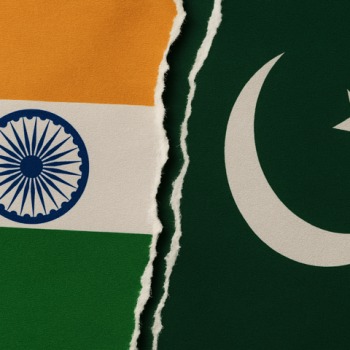 http://arabic.bayynat.org.lb/ArticlePage.aspx?id=15913
http://arabic.bayynat.org.lb/ArticlePage.aspx?id=15913
by Sohaib Awan
Jews say that they are the one and only Chosen People, Christians say that if you don’t accept Christ, you won’t be saved, and Buddhists consider their path the only path to enlightenment.
Each claims heaven/truth for its people to the exclusion of others.
But that can’t be right, can it? Regardless of our faith, our heart tells us that there is something wrong with believing everybody except [insert your religious affiliation here] is going to Hell. Clearly, there are good and bad Sikhs, Muslims, Hindus and Jews out there. Can they all really be condemned to Hell simply because of their beliefs? Our heart also tells us that there is something not quite right about calling Moses, Jesus, Muhammad, Confucius, or Krishna liars or their sacred texts complete fabrications.
Plus, aren’t there a lot of similarities in all these religions anyway? Granted, there are differences but most of them teach us to be thankful to our Creator and kind to His creation. So then what’s going on?
The answer to this question revolves around three elements at play: isolation, evolution, and devolution.
Let’s start with isolation. For much of human history, until modern communication, our societies just weren’t connected with each other, which made it impossible to have one prophet give the whole world one message. So, God being Just didn’t say, “well forget the rest of the world, I’ll just send Jesus to Judea and the rest of the world can, uh, I don’t know… wait for the message to get to them.” So if Christianity was the one true religion, then what about the millions of people that lived in Brazil for hundreds of years before Jesus and hundreds of years after Jesus until the message finally reached them? They can’t all have been deprived of salvation could they?
No! That’s why God sent prophets to all people of all times with relatively the same message for their salvation, which explains the similarities between religions. It also, in part, explains the differences. For example, abstaining from eating beef was likely a very suitable teaching for the Hindus of India where cows plowed fields that provided vegetation and gave milk that could be made into yogurt thereby providing sustenance for the entire community. Slaughtering them and eating their meat could have devastated their whole society and so they were forbidden from it. But that isn’t necessarily true for every other society or the global village in which we live now. So when Jesus stated, “I am the way, the truth and the life, no one comes to the Father but through me,” he wasn’t wrong, he just meant it for a very isolated group of people for a very isolated period of time (John 14:6).
The second element at play is evolution. God could not have taught everything all at once. It would have been like teaching Shakespeare to a kindergartener. So, He began with Dr. Seuss, or in other words he taught Adam, the first prophet of God, things that are very simple to us such as the establishment of marital relations and modest dress. Then, over the course of human history, God gradually increased the complexity of His teachings. For example, to the Jews, who had been under the slavery of Pharaoh and thus had lost all sense of the concept of justice, He taught, “an eye for an eye” (Exodus 21:24). But then, He wished to evolve their morality further, so he sent Jesus who taught, “turn the other cheek” to instill the quality of forgiveness (Matthew 5:39). Then, yet further, He sent Muhammad who taught a balance between justice and forgiveness: “The recompense of an injury is an injury the like thereof; but whoso forgives and thereby brings about reform, his reward is with Allah” (Quran 42:41).
Great, so what about all the differences? This is where the third element of devolution comes into play. Though all prophets came with relatively similar messages, we find that those messages weren’t preserved in their original forms very well. The Bible in fact acknowledges this, when it states, “How can you say we are wise because we have the Law of the Lord, when the lying pen of the scribes has handled it falsely” (Jeremiah 8:8). This devolution of religious scriptures along with their understanding led to the distorted versions of the religions we find today, which explains their differences.
Consider the following analogy: Imagine the Pentagon with its five walls with five separate entrances. If we placed five different people in front of each wall so that they couldn’t tell the whole building was pentagonal, they would swear that the way in was right in front of them. Perhaps, they would even claim it was the only way in. But we, having a three dimensional view of the building, would know that there are in fact several entrances.
But one issue remains; these entrances have all been blocked, the windows barred, and the door handles broken because over time the religions that they represent have been corrupted. It’s not to say that one can’t still get in, it’s just very difficult and it would be in ignorance of the fact there are many other entrances.
If only there was an entryway that wasn’t obstructed and gave one the insight that showed the whole scheme of God’s plan! One that, perhaps, lifted man up in a helicopter giving him a three-dimensional view and then landed him on the helipad of the building for easy access.
Thankfully, there is. The teachings of Islam as outlined by the Holy Quran are founded on these very principles and functions on this very understanding:
Prophets sent to all people
“…There is no people to whom a Warner has not been sent” (35:25).
“And We did raise among every people a Messenger…” (16:37).
Belief in all prophets
“Say, ‘We believe in Allah and in that which has been revealed to us, and that which was reveled to Abraham and Ishmael and Isaac and Jacob and the tribes, and in that which was given to Moses and Jesus from their Lord. We make no distinction between any of them and to Him we submit’” (3:85).
No monopolization of salvation
“Surely, those who believe and the Jews and the Christians and the Sabians* – whichever believes in Allah and the Last Day and does good deeds, shall have their reward with their Lord, and no fear shall come upon them and neither shall they grieve” (2:63).
Islam acknowledges the truthful origins of all major religions and their holy founders. It builds upon the foundation stones laid by these religions but at the same time rectifies the interpolations that human hands have incorporated into them. It then raises man to a level where he achieves communion with his Creator all while granting him a coherent and reassuring understanding of His masterful plan. It clears the conscience of an unjust and uncompassionate God and thus fosters love and harmony among all of His creation.
* A term used for those belonging to a non-Abrahamic faith.
Sohaib Awan is a student at Northeast Ohio Medical University and serves as Chairman of the Muslim Writers Guild of America. Continue you the conversation with him at [email protected] or @Muslim_Ink.












